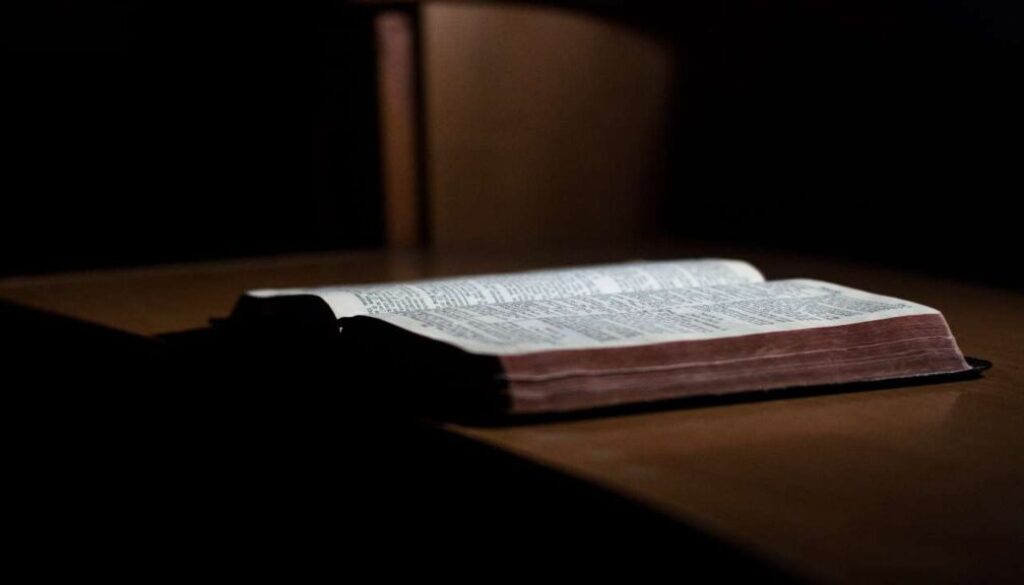What is the Second Death?
Death is defined as “the action or fact of dying or being killed; the end of the life of a person or organism; the state of being dead; the permanent ending of vital processes in a cell or tissue.” The Cambridge Dictionary tersely defines death as“the end of life.”
Death therefore means the termination of a person’s life either through sickness, accident, violence, or pronouncement of law, or any other means. It is a total and permanent cessation of all the vital functions of a person or an organism.
In the Bible, especially in the New Testament, death is often referred to as “sleep.” It is called sleep, not because the human soul is immortal, but because God has destined all human beings to resurrection after death (Heb. 9:27; Dan. 12:2; John 5:25, 28, 29).
The word “resurrection” simply means being brought back to life again. Many people have taught their followers that the resurrection promised in the Bible is the resurrection of the body. But that is not what the Bible has taught. It is a resurrection of the soul, the real human being who uses the body as a house. At death, the body goes into the earth from which it was made and is eaten up by maggots and rots away (Gen. 3:19). Paul likened the body to a temporary “tent” which gets destroyed at the point of death. On the day of resurrection, it is the soul that is going to be woken up from death and given a new body which Paul likened to an “eternal building”, made in heaven (2 Cor. 5:1). This heaven-made body will be put on the resurrected soul which gets immortality from God on the day of the first resurrection (1 Cor. 15:20-23, 50-54). During the intermediate state between death and resurrection the soul, according to Paul, is “unclothed” or “naked.” We put on our new clothes from heaven at the time when “mortality is swallowed up by life,” that is, at the return of Christ (2 Cor. 5:4). God is the only One who possesses immortality, who cannot die or be killed (1 Tim. 6:16). No human being has an immortal soul. See Ezek. 18:4 and Matt. 10:28. The Omniscient God will not destroy any soul if He had made it immortal. The souls that belong to Christ will be made immortal on the day of the first resurrection which God has planned to take place on the day of Christ’s second coming to the earth (1 Cor. 15:52-54; 1 Thes. 4:16, 17). There is no reason for God to resurrect the “tent” which is destroyed at death because He is going to clothe the disembodied soul of each resurrected saint with a new body metaphorically termed “a house [or building] from heaven” by Paul (2 Cor. 5:2).
As has been written in the Bible, all human beings will partake of death and resurrection. But only the souls of the people who partake of the first resurrection and God’s people who will still be alive on the day of Christ’s return will be gifted with immortality of their souls. But during the intermediate state between death and resurrection, the soul is devoid of any vital function. See Eccl. 9:5, 10, Psa. 6:5, Psa. 115:17, Isa. 38:18. When people die their souls and body are dead, but the soul remains in the grave awaiting resurrection.
What is the Second Death?
The term “second death” is used four times in the book of Revelation (2:11; 20:6, 14; 21:8).
The common definition among many Bible teachers is that the second death means eternal punishment in the lake of fire. Some say it means eternal separation from God. But the word “death” does not suggest that the lake of fire will be God’s torture chamber where sinners will be tormented throughout eternity. The basic meaning of death is the cessation of life. Second death means a permanent and eternal death that will befall all unrepentant and unbelieving sinners who will be burnt up to nonexistence in the lake of fire after the millennial reign of Christ and after the judgment of the world. There will be no hope of any other resurrection for such people. They will be burnt up. The following should be noted:
- God said, “The soul who sins will die” (Ezek. 18:4). And Paul wrote, “the wages of sin is death but the gift of God is eternal life through Jesus Christ” (Rom. 6:23). While the true believer receives eternal life as a gift from God, the unrepentant sinner gets death as his/her own reward from God. None of the verses say the unrepentant sinner will be given “eternal life” by God so that he or she will suffer eternally in the lake of fire.
- “For God so loved the world that He gave His only begotten Son, that whoever believes in Him should not perish but have everlasting [eternal] life” (John 3:16 NKJV emphasis and word in square bracket added). The opposite of eternal life here is death, not eternal torment in the lake of fire. The word “perish” is translated from the Greek “apollumi” which means to destroy fully, literally or figuratively (Strong’s Greek Lexicon #622). The word is used 92 times in the New Testament, but in the KJV, it is translated in 90 places (except Acts 27:34 and Rev. 18:14) as “perish” or “perished” (31 times), “destroy” or “destroyed” (27 times), “lose” or “lost” (31 times) and “marred” in Mark 2:22. In all of the 92 occurrences, including John 3:16, the word connotes the termination of life. Therefore the opposite of eternal life is eternal death – death without the hope of resurrection, not eternal conscious torment.
- In Matt. 25:31-46, Jesus made an analogy of the judgment of the last day using sheep and goats, those on his right hand side and those on the left. In verse 41 he said those on the left hand side will be dispatched to “everlasting fire” prepared for the devil and his angels. He then said in verse 46 that they will go into “everlasting punishment.” The “everlasting fire” is what the Lord termed “unquenchable fire” (Matt. 3:12; Luke 3:17) or “fire that shall never be quenched” (Mark 9:43). This undoubtedly is the fire which burns in the lake of fire mentioned four times in Revelation, and which is fuelled with brimstone or sulphur. The fact that the fire in this lake or pit will not be quenched does not mean the sinners who will be thrown into it (Matt. 25:41; Rev. 20:15) will remain burning throughout future eternity. We know this because John the Baptist, who made the same analogy using wheat and chaff, said the sinners who will be condemned to the lake of fire, represented as “chaff,” will be “burnt up” (Matt. 3:12; Luke 3:17). The words “burn up”are translated from the Greek “katakaio” which means to burn up, consume entirely (Strong’s Greek Lexicon #2618). In all the twelve times the word is used in the New Testament (Matt. 3:12; 13:30; 13:40; Luke 3:17; Acts 19:19; 1 Cor. 3:15; Heb. 13:11; Rev 8:7 (3 times); 17:16; 18:8), the idea of burning up completely is conveyed. In Matt. 13:30 Jesus said, “Let both grow together until the harvest. Then I will tell the harvesters to sort out the weeds, tie them into bundles, and burn them, and to put the wheat in the barn.’” (Matt. 13:30 NLT). In verses 37 and 38, he explained that the angels are the reapers or harvesters, the children of the kingdom are the represented by wheat while the tares or weeds represent those who belong to evil one, who’ll be burnt up at the end of the age. In Rev. 18:8 where it was foretold that the eschatological Babylon will be “utterly burned with fire” (KJV), or “consumed by fire” (NIV), the Bible doesn’t mean that the fire will keep burning through all future eternity. So, when it was said later that “the smoke from her fire goes up for ever and ever.” (Rev. 19:3 NIRV), we should understand the phrase ”for ever and ever” as an imagery expressing her complete and irreversible ruin. She will be completely burnt into extinction.
- Angels don’t die but humans do (Luke 20:36; Heb. 2:6-9). Angels are spirits but humans are physical beings. This suggests that when fallen angels including Satan and mortal humans are thrown into the lake of fire, we should not expect the fire to have the same effect on them. While mortal humans will be burnt to ashes like dry grass or chaff, angels will not likely burn the same way. Just as observed by the late Billy Graham, “the same sun that melts the butter hardens the clay.” The different results lies in the different elements they are made of.
- Apostle Paul said the end of the wicked will be “everlasting destruction” (2 Thes. 1:9). The word “destruction” (Greek: “olethros”) which means “ruin,” “destruction,” “doom,” or “death” (Strong’s GreekLexicon #3639) is also used by Paul in 1 Cor. 5:5; 2 Thes. 5:3; 1 Tim. 6:9. Therefore “everlasting (or eternal) destruction” cannot be rightly interpreted as “everlasting torment.” His use of the words in all the four verses implies a complete destruction into nonexistence, an annihilation.
The Character of God
The common interpretation of the lake of fire as the place where unrepentant sinners will go through an eternal conscious torment runs counter to the character of God as revealed in the Bible. These few Bible verses are given to demonstrate this fact:
“If someone has committed a crime worthy of death and is executed and hung on a tree, the body must not remain hanging from the tree overnight. You must bury the body that same day, for anyone who is hung is cursed in the sight of God. In this way, you will prevent the defilement of the land the Lord your God is giving you as your special possession.” (Deut. 21:22-23 NLT).
God gave the commandment that any criminal who is put to death by hanging must not be left hanging on a tree overnight. He must be buried as soon as he died on the tree. Keeping the corpse hanging on the gallows overnight amounted to punishing the sinner longer than his sin deserved; the punishment is served at the point of death of the offender. This law elicits a logical question which is this: Will God, the righteous judge of the universe, who gave this command be the one punishing humans for billions and trillions of years for sin(s) committed by a person in a few years? This does not portray the character of the compassionate God that YHWH is.
“The Lord is compassionate and gracious, slow to anger, abounding in love. He will not always accuse, nor will he harbour his anger for ever; he does not treat us as our sins deserve or repay us according to our iniquities. (Psa. 103:8-10 NIVUK).
God is the Maker of mankind and He does whatever pleases Him. But He cannot be associated with callousness and wickedness. As the Maker, He has the right to dispose of any of His creation just as the potter has with the clay. But the Bible doesn’t say the lake of fire is His torture chamber for humankind. It is the lake where the wicked will be put to death a second time by being burnt up with fire and sulphur. There will be no resurrection for those who partake of the second death, and that is the difference between it and the first death.
“Say to them [Israelites, God’s chosen people], ‘As surely as I live, declares the Sovereign Lord, I take no pleasure in the death of the wicked, but rather that they turn from their ways and live. Turn! Turn from your evil ways! Why will you die, people of Israel?’” (Ezek. 33:11 NIVUK).
He has no pleasure in the death of anyone. But those who obstinately spurn His love, mercy and compassion and turn apostates He must eventually destroy in the lake of fire. He will put them out of existence. He will not torture them eternally in the lake of fire.
Biblical Usage of “Eternal”
Jude made us know that the fire that destroyed Sodom and Gomorrah and their neighbouring towns was an “eternal fire” (Greek: “pyr aionion”). See Jude 1:7. Abraham saw the smoke of the fire in the morning following the day of destruction (Gen. 19:28). No one knows how many days it took the fire to burn up Sodom and Gomorrah. What is known is that the fire is no more burning. So Jude’s use of “eternal fire” could very well mean the eternal consequence of the fire – burning the cities of the plain into extinction. (It is believed that the Dead Sea used to be the place where Sodom and Gomorrah were before God burnt them and the place sank after the fire burnt itself out.) The fact that they came under the punishment of “eternal fire” does not mean that they keep burning forever and ever.
Our Lord Jesus Christ told some unbelieving scribes, “Truly I say to you, all sins will be forgiven the sons and daughters of men, and whatever blasphemies they commit; but whoever blasphemes against the Holy Spirit never has forgiveness, but is guilty of an eternal sin” (Mark 3:28-29 NASB2020).
It will not be sensible for anyone to say that Jesus meant here that anyone who blasphemes the Holy Spirit will keep on committing the sin throughout eternity. What he meant here is that there are eternal consequences of committing the sin of blasphemy against the Holy Spirit.
Paul mentioned “eternal judgment” in Heb. 6:2. Did he mean that God will eternally be judging? No! In affirmation of what the Bible teaches on judgment, he said God has set a day on which He will judge the whole world in righteousness through the man [Jesus Christ] He has appointed. We know, therefore, that “eternal judgment” does not connote judgment that goes on for eternity; it means a judgment whose result is eternal.
Having seen that the terms “eternal sin,” “eternal judgment” and “eternal fire” connote the consequences of the phrases, it is evidently certain that “eternal punishment” mentioned by Jesus Christ in Matt. 25:46 cannot rightly be interpreted as punishment that goes on all through eternity. It simply means that the punishment has eternal consequences – that of being made subject to the second death, of being obliterated.
Conclusion
The first death is called “sleep,” not because the soul continues to live after death has occurred but because all who partake of it have been destined by God to resurrection. And the resurrection is not that of the body but of the soul. The natural body, likened to a temporary “tent” by Paul gets destroyed at the first death (2 Cor. 5:1). For those who’ll have a part in the first resurrection, this “tent” will be replaced by a permanent “building” made in heaven, that is, a spiritual body (1 Cor. 15:44). This clearly shows that it is the soul that God brings back to life at the resurrection.
The second death, like the first death means the cessation of life or existence. Those who’ll partake of the second death will have their lives or souls totally destroyed in the lake of fire (Matt. 10:28). There’ll be no second resurrection for them. Their existence will be obliterated by God. The second death is not an eternal conscious torment in the lake of fire. The teaching of eternal conscious torment in the lake of fire is done by people who have not done exegetical study of the Bible. If what they teach were true, then those who’ll enter into God’s Kingdom will have their joy ruined by the thought of some loved ones undergoing eternal torment in the lake of fire. More importantly, the Bible has not taught us that life continues in death. The second death means the obliteration of the lives of the wicked. It cannot be an eternal consciousness torment in the lake of fire. If those who’ll be thrown into the lake of fire will remain conscious, their state in that lake will not be called death. If death in other Bible passages means the absence of life, it amounts to theological deception to twist the second death as meaning a continuation of life. Second death means dying a second time without the hope of resurrection. It is not an eternal conscious torment in the lake of fire.



